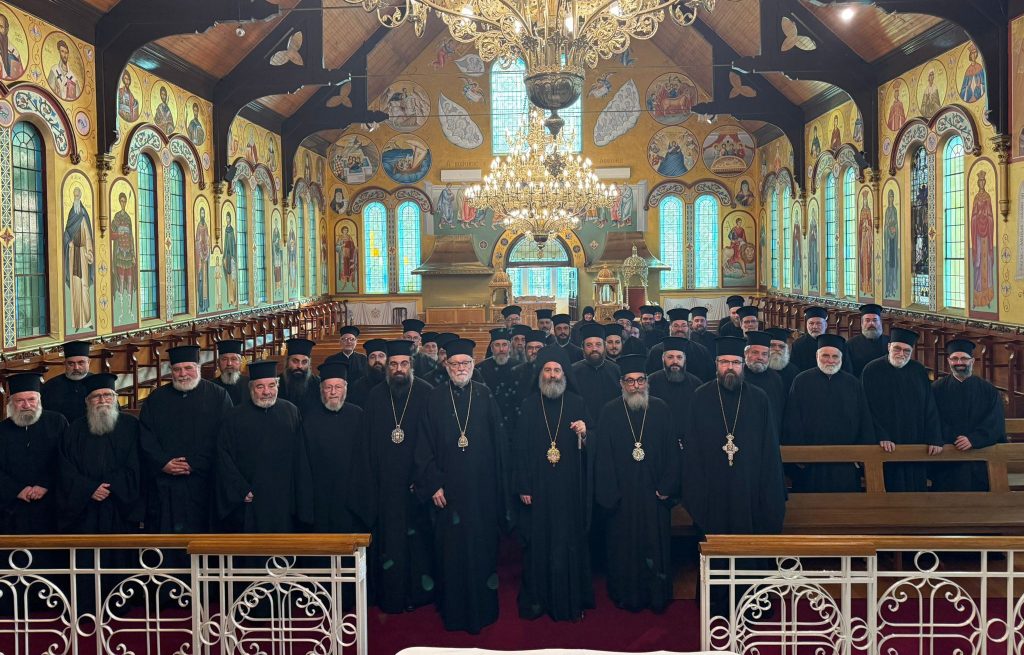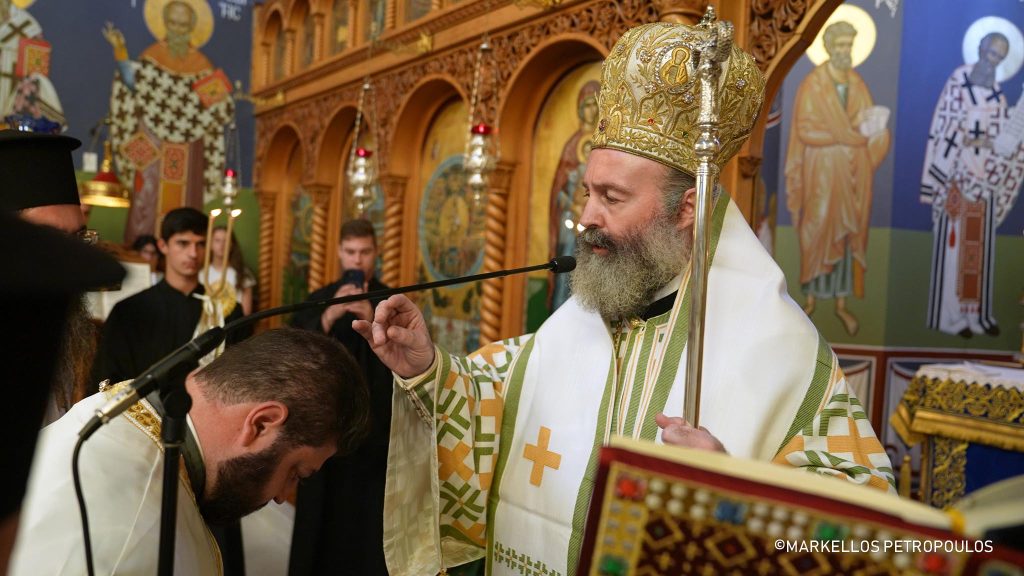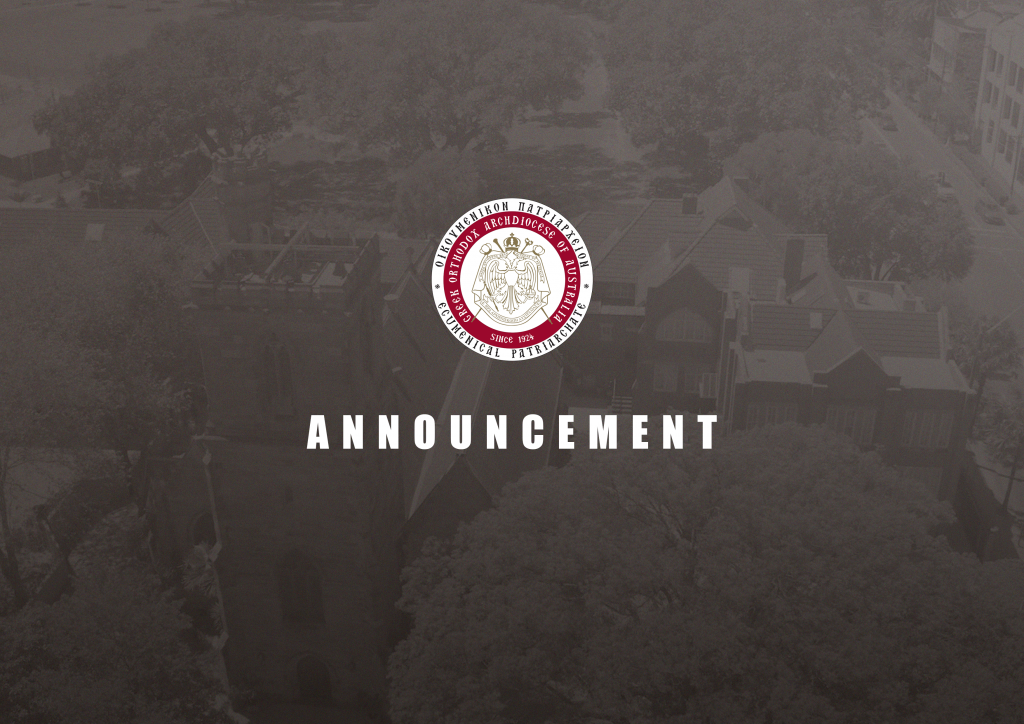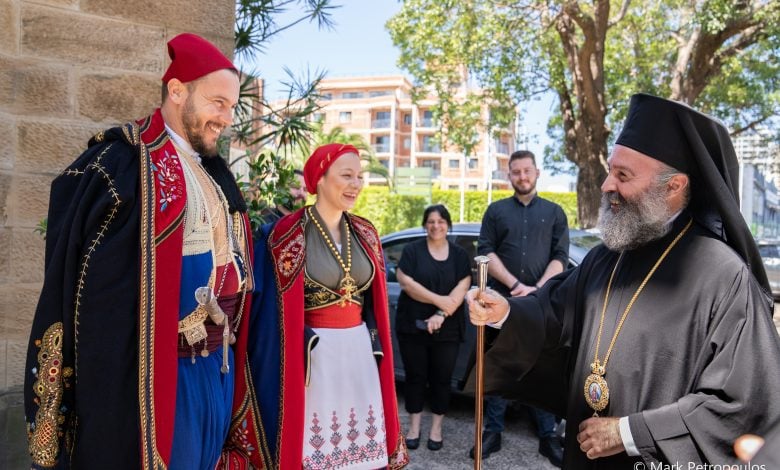
On Thursday, 14 August 2025, His Eminence Archbishop Makarios of Australia, who is currently conducting a pastoral visit to Melbourne on the occasion of the Feast of the Dormition of the Virgin Mary, presided over a Priestly Synaxis of the clergy serving in the Holy Dioceses of Melbourne and Chora, in the State of Victoria. The Synod was hosted at the Archdiocesan Church of St. Eustathios and was attended by His Eminence Metropolitan Ezekiel of Dervis, Their Graces, Bishop Kyriakos of Melbourne and Bishop Evmenios of Chora, and the Chancellor of the Holy Archdiocese of Australia, Archimandrite of the Ecumenical Throne Christophoros Krikelis.
Archbishop Makarios gave an interesting presentation on the topic: “Multiculturalism and Social Racism”, where he expressed his thoughts and concerns regarding the role that Orthodoxy is called to play in the multicultural environment of modern society. His Eminence, after emphasising in his introduction that religion is the centre of culture, presented and compared the characteristics of culturally pure societies with those of multicultural societies. Attempting a theological approach to the phenomenon under examination, he observed that the Apostle Paul, in his Epistle to the Galatians (Gal. 3:26–28), “reminds us that being a Christian does not mean denying one’s otherness — their national, social, or racial identity — but always remembering that within the Church all communities are in communion as a result of the faith and love we must have for one another. Therefore, the recognition of the other’s distinctiveness, as well as of our unity with the other, is a prerequisite for broader unity within modern pluralistic society. The multicultural nature of contemporary society challenges Orthodoxy to discover, through its own otherness, points of identity with other communities that insist on their own irreducible distinctiveness, so that they may coexist peacefully and justly within the same vital space.”
In another part of his presentation, the Archbishop emphasised that “the Triune God whom we worship is a God of otherness and communion — a transcendent mystery of redemptive and crucified love, offered so that the world may have life. The Holy Spirit, in its absolute freedom and its unceasing salvific presence in the world, can surprise us with its work: ‘The Spirit blows where it wills, and you hear its sound, but you do not know where it comes from or where it goes’ (John 3:8). Within this pneumatological framework, we must not exclude the possibility that the presence of others within our own vital social space, and our interaction with them, may be a divine challenge — one that calls us to a deeper understanding and more authentic experience of our faith.”
In conclusion, His Eminence reminded that the very Incarnation of the Divine Logos — that is, the coming of God into the world — in which the Uncreated God is joined to and associates with human nature and history, testifies to perhaps the most paradoxical example of tolerance, acceptance, and adaptation to the cultural particularity of the other. “This,” he emphasised, “is truly the establishment of multiculturalism and the abolition of social racism.” He noted: “Any comparison between created cultures remains overwhelmingly inferior to this utterly unprecedented coexistence or communion. Christ spoke with the marginalised, with prostitutes and tax collectors; He praised the Samaritan in the parable who cared for the foreigner; He associated with the unlearned, with fishermen, with shepherds; He ate with the outcasts. He spoke of the neighbour and told us to love them as ourselves; and He even spoke of our enemies, commanding us to love them even more — for that constitutes a true transcendence.”
After the conclusion of the presentation, a constructive exchange of views followed, and the Priestly Synaxis concluded with a discussion on practical and administrative matters, during which appropriate guidance and counsel were offered by Archbishop Makarios.



